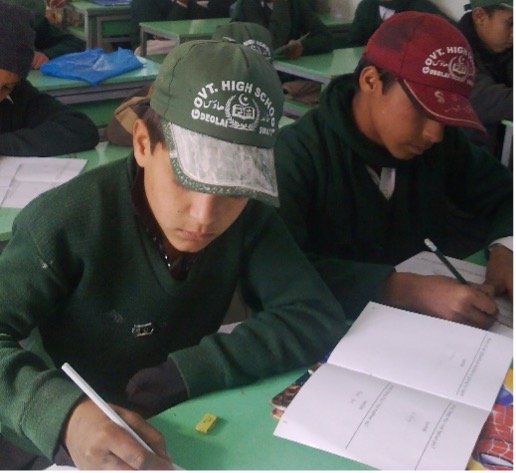
Schools Intervention Program (SIP)
A lack of critical thinking and logical reasoning was found to be a common denominator for over 90% of the Sabaoon population. Many had also dropped out of school at the time of induction. These findings pointed to the need to decrease the dropout rate and promote critical thinking skills in order to counter the violent extremism narrative.
As a result, SWAaT decided to support five existing government-run high schools in the areas from which majority of the Sabaoon youth belonged. These were Kanju, Kabbal, Charbagh, Deolai and Tootanobanday. Initially, only boys’ schools were being supported, as boys were at risk of being recruited into VE groups. However, overtime, two of the girls’ schools were also included in this support.
The aim was to provide these schools with IT (computers and a computer instructor) and a state-of-the-art library (with a librarian). For the first two years, evening classes were offered to the community members for basic IT courses (Microsoft, Coral, etc.) in order to provide basic computer skills which could enable the students to seek employment and or additional freelance work.
With this very basic support the impact for all of the seven schools was extremely promising, with overall enrolment increasing every subsequent year, attendance improving and achievement (grades/marks) enhancing. As a result, a Learning Enhancement Fund (LEF) was also introduced for these schools which would enable them to utilize funds for extracurricular activities (sports days, debating competitions, etc.) for the school population, encouraging interaction-based learning aimed at increasing social skills and confidence building.

